Beets are packed with vitamins, minerals, and nutrients, earning them the title of a “superfood”. They are beneficial for an array of health issues including anemia, indigestion, constipation, hemorrhoids, kidney disorders, dandruff, gallbladder complications, cancer, and heart disease.
Additionally, beets enhance blood circulation, assist in respiratory problems, and may even prevent cataracts. Beets are also touted for their positive effects on hair health. In the following sections, we will explore the benefits and potential side effects of beetroot on hair care routines.
Side Effects of Beetroot on Hair
You might wonder if there are any side effects of using beetroot to color your hair. So far, no proven side effects exist, making it a safe and natural method for hair coloring.
However, it’s always wise to visit your dermatologist for a checkup to ensure that your scalp won’t react negatively to beetroot.
Some people might have an allergic reaction when beetroot comes into contact with their scalp. If your scalp shows no reaction, you can safely explore the benefits of beetroot for your hair.
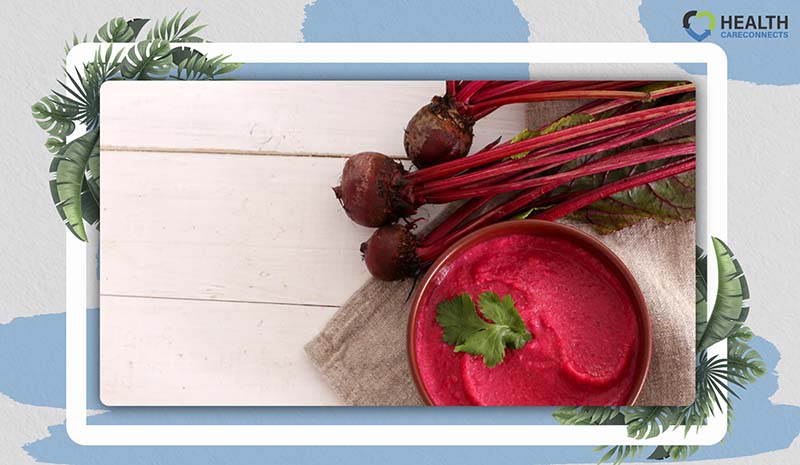
8 Beetroot Benefits for Hair
Beetroot, cultivated for nearly 4000 years, offers edible leaves, stems, and roots. You can enjoy it raw in salads or cooked in soups and curries.
Rich in nutrition and medicinal properties, beetroot is high in fiber, minerals, vitamins, and chlorine, with lower carbohydrate content compared to other starchy vegetables. Its properties make it an excellent addition to your hair care routine.
Serves as a Natural Alternative to Hair Dye
Beetroot can be used as a natural hair dye, protecting your hair from the harmful chemicals in commercial dyes. It acts as a temporary dye, allowing you to customize the shade and tone to your preference.
Beetroot gives your hair a reddish tint, which can be intensified or modified by mixing it with other natural ingredients like henna or lemon juice.
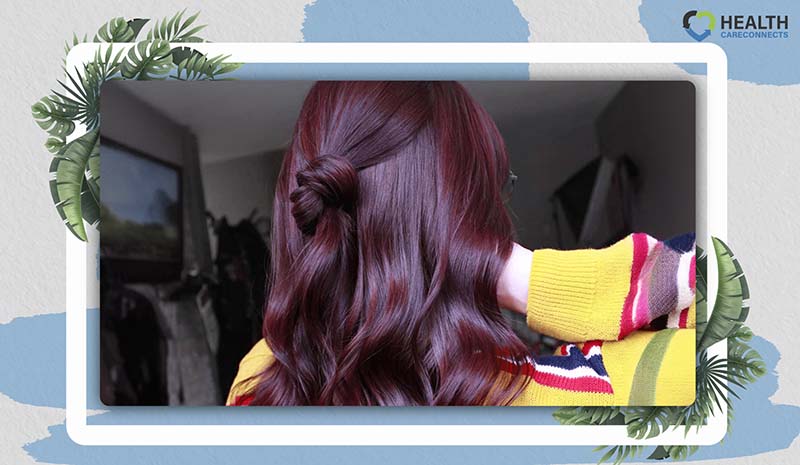
Prevents Hair Loss
Mineral deficiencies can lead to hair loss. Beetroot is rich in minerals like potassium, magnesium, iron, phosphorus, and electrolytes, which strengthen hair and reduce breakage.
It nourishes hair follicles, promoting healthier hair. Regular application or consumption of beetroot ensures that your hair receives essential nutrients, reducing hair fall and making your hair stronger and more resilient.
Promotes Scalp Blood Circulation
Beetroot enhances scalp blood circulation due to its high nitrate content, which converts to nitric oxide. This dilates blood vessels, improving blood flow to the scalp. Better circulation ensures well-nourished hair follicles, promoting stronger hair growth and a healthy scalp environment.
Massaging the scalp with beetroot juice or including it in your diet can boost scalp blood flow and overall hair health. Improved blood flow also helps in removing toxins from the scalp, keeping it clean and healthy.
Supports Dandruff Treatment
Dandruff, often caused by fungi, can lead to itching, rashes, and hair fall. Beetroot contains enzymes and silica that moisturize the scalp, providing nourishment to hair follicles and helping to eliminate dandruff.
Silica hydrates the scalp, which reduces dryness and flakiness. Applying beetroot juice directly to the scalp or incorporating it into a hair mask can effectively treat and prevent dandruff.
Makes Hair Shiny and Soft
Consistent use of beetroot on your hair or scalp can lead to gradual improvements. Your hair will appear more vibrant and naturally shiny. The vitamins and minerals in beetroot help restore the natural luster of your hair, making it look healthier and more attractive.
Beetroot can also improve the texture of your hair, making it softer and smoother to the touch.
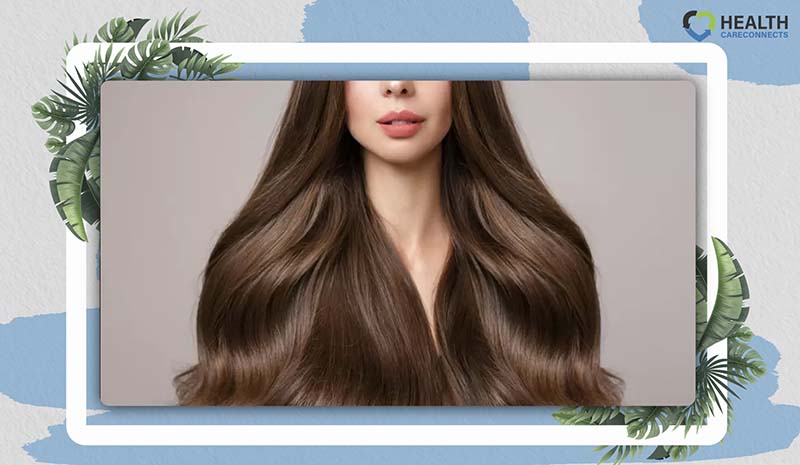
Nourishes Hair Follicles
Beetroot is packed with vitamins, minerals, and antioxidants that nourish hair follicles, promoting healthy hair growth. Nutrients like vitamin C, iron, and potassium improve blood circulation to the scalp, ensuring hair follicles receive essential nutrients and oxygen.
Regular use of beetroot in hair care routines, either as a hair mask or in the form of beetroot juice, can result in healthier, lustrous hair. These nutrients strengthen hair from the roots, reducing hair fall and breakage.
Delays Premature Graying
Beetroot’s antioxidant properties, enriched with vitamins C and E, and carotene, help delay the aging process. One of the causes of gray hair is the aging process, and consuming beetroot can help delay this process.
Beetroot juice is effective in preventing premature graying by providing the necessary antioxidants that combat free radicals. Regular intake of beetroot can keep your hair’s natural color intact for a longer period.
Protects the Scalp from UV Rays
Sun exposure can damage hair texture and the scalp. The harmful UV rays can lead to overall hair damage, causing it to become dry and brittle.
Applying beetroot can help your hair recover from sun damage. The antioxidants in beetroot provide a protective barrier against UV rays, minimizing the harmful effects of sun exposure. This helps maintain the integrity of your hair and scalp, keeping them healthy and protected.
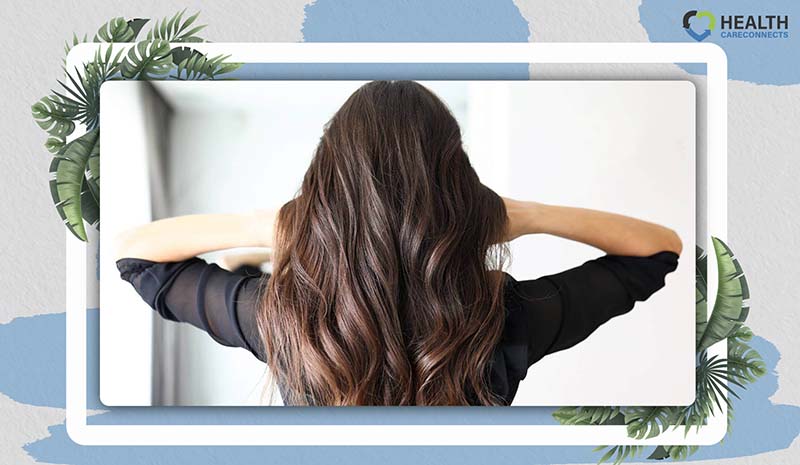
How to Use Beets for Effective Hair
Using beets for hair care can be beneficial due to their rich nutrient content, which includes vitamins, minerals, and antioxidants. Here’s a step-by-step guide on how to use beets effectively for hair care:
Beet Juice for Hair Growth and Shine
Drinking beet juice can boost hair health from the inside out. Beets are packed with vitamins and minerals like vitamin A, vitamin C, iron, magnesium, folate, and potassium that nourish hair follicles and promote growth. The antioxidants in beets also add natural shine to hair.
How to use:
- Drink a glass of fresh beet juice daily.
- Combine beet juice with other healthy juices like carrot or apple for added benefits.
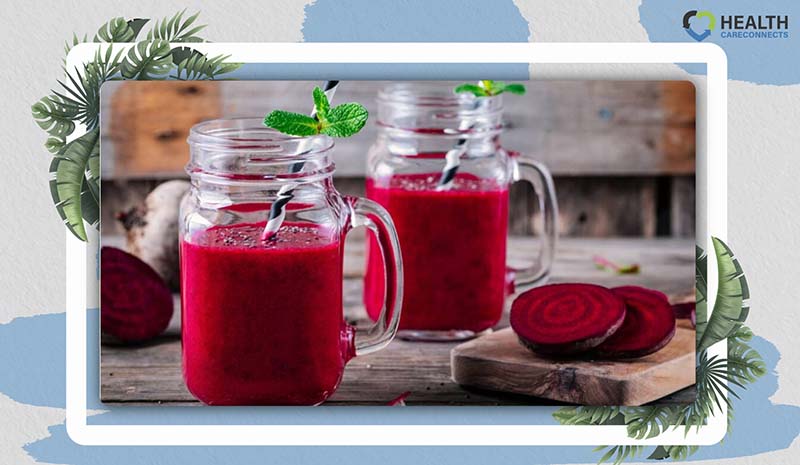
Beet Hair Mask
Applying a beet hair mask can directly nourish the scalp and strands.
How to make and use:
- Juice some beets and mix the juice with an equal amount of coconut oil or olive oil.
- Massage the mixture into the scalp and hair.
- Leave it on for 30 minutes to an hour before shampooing out.
- Repeat this process once a week for best results.
The betalain antioxidants in beets help fight free radicals that damage hair, while the oil deeply conditions, leaving your hair soft and nourished.
Beet Rinse for Dandruff Relief
Boiling beet chunks in water creates a rinse that can help soothe itchy, flaky dandruff.
How to make and use:
- Boil chunks of beetroot in water for 30 minutes.
- Let the solution cool, then pour it over the scalp after shampooing.
- Leave it on for a few hours or overnight before rinsing out.
- Use this rinse twice a week for dandruff relief.
The anti-inflammatory properties of beets may help reduce dandruff and provide relief from itching.
Beet Hair Dye
Beet juice can be used as a temporary, natural hair dye to color hair a reddish hue.
How to make and use:
- Mix beet juice with a carrier oil like coconut or olive oil.
- Apply the mixture to your hair, ensuring even coverage.
- Let it sit for 1-2 hours before rinsing out.
- For a deeper color, leave it on for a longer period.
The bright red pigments in beets, called betalains, provide a natural reddish tint to your hair without the use of harsh chemicals.
Who Should Not Use Beetroot Powder for?
Pregnant women may want to limit their consumption of beetroot due to the presence of betaine, which has been linked to potential pregnancy complications.
Additionally, for those dealing with gallbladder issues or prone to kidney stones, it’s advisable to steer clear of beetroot. This is because beetroot has a high oxalate content, a known contributor to the formation of kidney stones.
If you have a history of gastrointestinal problems, including beetroot in your diet might worsen these conditions due to its potent effects on the digestive system.
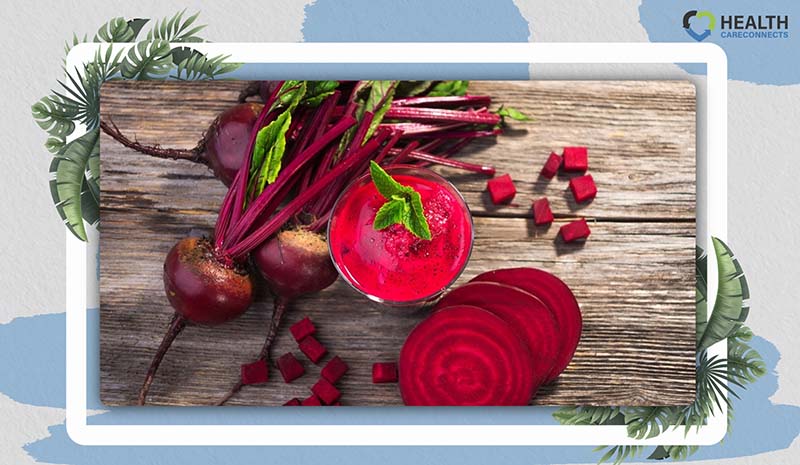
Can Beetroot Powder Be Used Every Day?
Beetroot can be a great addition to your daily diet thanks to its wealth of micronutrients that promote healthy skin and hair.
However, when it comes to using beetroot topically, such as in a mask for hair and skin, it’s best to limit application to two or three times a week. This vegetable contains many beneficial nutrients, but avoid consuming or overusing it.
This is particularly relevant because of its high oxalate content, which can contribute to certain health issues if overconsumed.
Conclusion
Beetroot, though rich in antioxidants, vitamins, minerals, and dietary fiber, is often overlooked compared to other vegetables for hair and skin care applications. Despite this, beetroot can be utilized in a variety of ways to both nourish and naturally tint your hair when applied as a hair pack.
It serves as a safe and natural alternative to commercial hair dyes, which typically contain harsh chemicals. Integrating beetroot into your hair care regimen can offer multiple advantages, enhancing the health and vibrancy of your hair. However, be aware of potential side effects of beetroot on hair, such as temporary staining or scalp irritation in sensitive individuals.
For those seeking more information and honest product reviews, I recommend visiting HealthCareConnect. Explore firsthand experiences from users and gain valuable insights to help inform your decision.

Dr. Joyce Slater: Your Guide to Informed Health Choices
Dr. Joyce Slater shines as a distinguished expert in the field of nutrition and public health. Contributing her vast expertise to HealthConnectbc, she embodies a deep-seated passion for enhancing public well-being. As a respected figure in her field. Dr. Slater’s academic journey and professional achievements are nothing short of inspirational.
Holding a significant position as a researcher and educator, Dr. Slater has delved deeply into the intricacies of food literacy and nutritional science. Her work, prominently featured in numerous esteemed scientific publications, underscores her dedication to expanding our understanding of food’s role in health and society.
At the heart of Dr. Slater’s professional ethos is a profound desire to positively impact individual lives through education and research. She often says, “Empowering people with the knowledge to make healthier choices is the most rewarding aspect of my work.” This principle is the cornerstone of her involvement with HealthConnectbc, where she strives to provide reliable and practical health advice.
Dr. Slater’s contributions to HealthConnectbc are multifaceted: academically, she offers insights into the complex world of nutrition and health, enhancing both public understanding and professional practices. Additionally, she is instrumental in guiding and inspiring the next generation of health professionals, thus fostering future excellence in the field.
Juggling rigorous research with her educational duties, Dr. Slater demonstrates an unwavering commitment to her profession. Her approachable nature and genuine concern transcend the confines of academia, touching the lives of everyone she interacts with. Dr. Slater looks forward to continuing her journey of discovery and education, dedicated to the ongoing improvement of public health and nutrition.
At HealthConnectbc, Dr. J. Slater is not just a contributor; she is a guiding light, dedicated to enlightening and motivating individuals towards a healthier and more informed lifestyle.
PUBLISHED ARTICLES
- Food literacy competencies: A conceptual framework for youth transitioning to adulthood (2018)
- Self-perceived eating habits and food skills of Canadians (2016)
- Challenges to acquiring and utilizing food literacy: Perceptions of young Canadian adults (2016)
- Socio-demographic and geographic analysis of overweight and obesity in Canadian adults (2009)
- Sustainable well-being: Concepts, issues, and educational practices (2014)

